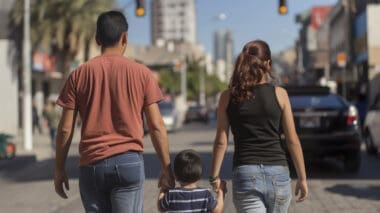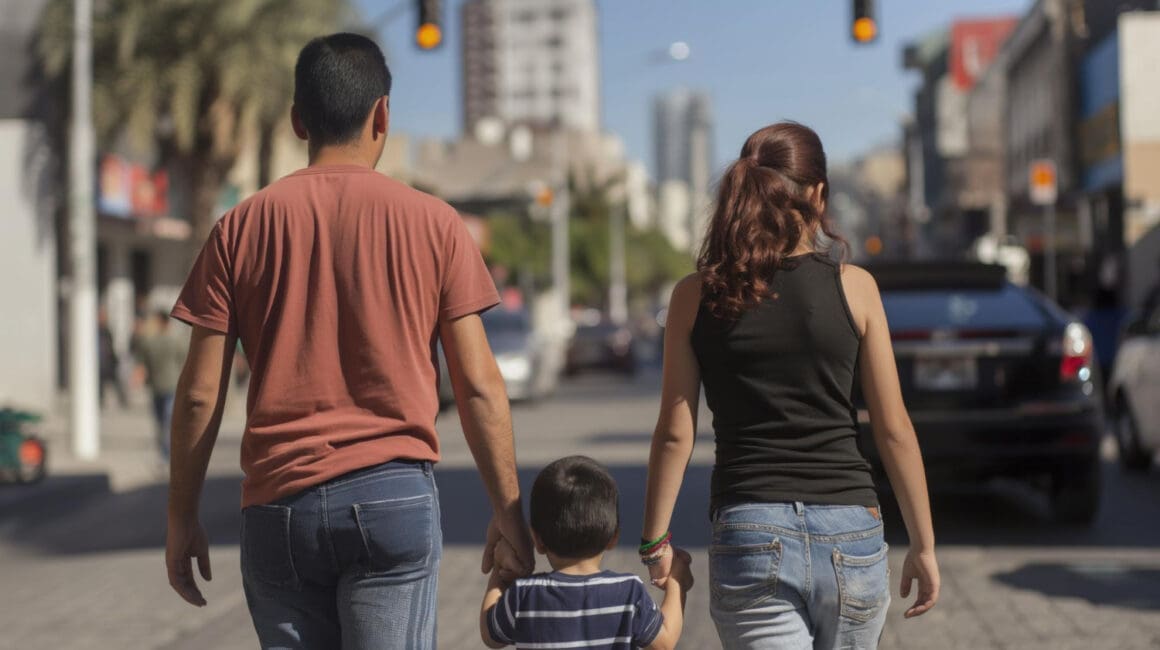A federal judge has announced plans to prevent the Trump administration from terminating a program that permits hundreds of thousands of Cubans, Haitians, Nicaraguans, and Venezuelans to temporarily reside in the United States. U.S. District Judge Indira Talwani has indicated she will issue a stay on the program, which was scheduled to conclude later this month. This initiative is part of a larger legal campaign to protect nationals from countries such as Ukraine and Afghanistan who are present legally in the U.S.
Recently, the administration withdrew legal protections for a significant number of Cubans, Haitians, Nicaraguans, and Venezuelans, placing them at risk of deportation within 30 days. Homeland Security Secretary Kristi Noem stated that these individuals would lose their legal status on April 24. They initially arrived with financial sponsors and received two-year permits to live and work in the U.S., during which they were expected to identify other legal avenues to remain in the country. The parole status granted was intended to be temporary.
President Donald Trump has been actively reducing legal pathways for immigrants seeking to enter the United States, in line with his campaign promises to deport millions residing illegally in the country. In the lead-up to the hearing, plaintiffs described the administration’s actions as “unprecedented” and anticipated that individuals would lose their legal status and employment capabilities. They argued that the move was “contrary to law” within the context of the Administrative Procedure Act, which outlines the processes agencies must adhere to when establishing rules.
The Trump administration’s lawyers contended that the plaintiffs lacked standing and that the U.S. Department of Homeland Security’s actions concerning the immigrants in the CHNV program did not breach the Administrative Procedure Act. They asserted that the decision to end the CHNV program and existing parole grants was within statutory authority and complied with statutory and regulatory notice requirements. They further argued that the temporary nature of CHNV parole, along with the inability of parolees to obtain re-parole, meant that the harm to them was outweighed by the public’s harm if the Secretary could not discontinue a program deemed not in the public interest.
The cessation of temporary protections for these immigrants has not resulted in significant political backlash among Republicans, with the exception of three Cuban-American representatives from Florida who opposed the deportation of affected Venezuelans. Among them, Rep. Maria Salazar of Miami joined approximately 200 congressional Democrats in cosponsoring a bill to enable these individuals to become lawful permanent residents.
Your World Now
The judge’s decision to pause the termination of the temporary residency program has substantial implications for the affected immigrants and their communities. By preventing the immediate loss of legal status, individuals can continue to live and work in the United States, providing stability for themselves and their families. This decision also reinforces legal mechanisms to challenge administrative actions perceived as unjust.
Communities with large populations of these immigrants may experience economic and social benefits, as individuals continue contributing to the local economy and cultural diversity. However, the ongoing uncertainty surrounding immigration policies underscores the importance of comprehensive reforms to address the needs of immigrants and ensure fair and consistent legal processes in the future.
For the broader public, this situation highlights the complexities of immigration policy and its profound effect on individuals’ lives. It emphasizes the need for balanced approaches that consider humanitarian, economic, and security factors while respecting the legal framework governing immigration.











